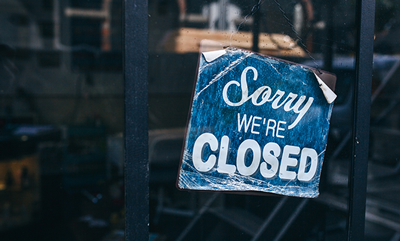The Government Shutdown Is an Environmental Health Crisis.
 Viewpoint articles are written by members of the SPH community from a wide diversity of perspectives. The views expressed are solely those of the author and are not intended to represent the views of Boston University or the School of Public Health. We aspire to a culture where all can express views in a context of civility and respect. Our guidance on the values that guide our commitment can be found at Revisiting the Principles of Free and Inclusive Academic Speech.
Viewpoint articles are written by members of the SPH community from a wide diversity of perspectives. The views expressed are solely those of the author and are not intended to represent the views of Boston University or the School of Public Health. We aspire to a culture where all can express views in a context of civility and respect. Our guidance on the values that guide our commitment can be found at Revisiting the Principles of Free and Inclusive Academic Speech.
As of today (Friday, January 18), the federal government has been shut down for 28 days, the longest shutdown in modern history. While President Trump’s administration and our Congress struggle to reach an agreement over the President’s request for a southern border wall, 800,000 US government workers are furloughed or forced to work without pay. There are easily discernible implications for those families without incomes who are struggling with their mortgage payments, grocery bills, and ability to meet their basic needs. But there are less obvious shutdown implications that may have long-term impacts on health and well-being, including the loss of important environmental and health protections promised to all people residing in the US.
As the New York Times reported, there are hundreds of EPA pollution inspectors currently off the job. This translates (based on previous years’ numbers) to the loss of about 225 inspections each week. While this may sound like a mundane bureaucratic process, the loss of inspections has real consequence—places that store hazardous waste, manufacture large quantities of chemicals, refine oil, treat drinking water, and emit pollutants to air, water, and soil are all operating without any threat of federal enforcement of environmental law.
At the Food and Drug Administration, the agency responsible for insuring the safety of 80 percent of our nation’s food supply, inspections were also sharply reduced over the past few weeks. While inspectors returned this week (without pay), consumer advocacy groups have voiced concerns over the current safety of our nation’s food supply especially for susceptible individuals like pregnant women and those with life-threatening food allergies.
Th
在
Furthermore, the shutdown has negative impacts on science and scholarship for the huge number of researchers working in collaboration with federal agencies and/or whose work is funded by these agencies. Members of the Department of Environmental Health here at SPH have reported they cannot access some federal datasets necessary for their work (like data from NOAA, EPA, and data.gov), cannot contact federal collaborating scientists, and cannot work with funding agencies on time sensitive issues related to federal grants.
The importance of collaboration for sound science cannot be overstated. Already, since the shutdown began, federal scientists have lost the opportunity to collaborate at important scientific conferences. Federal scientists from NOAA were absent from the American Meteorological Society Annual Conference. Closer to home, environmental health scientists at SPH are planning to attend the upcoming annual meeting for Centers of Excellence on Environmental Health Disparities Research. Absent a sudden resolution to the shutdown, this meeting will occur without participation from the EPA, and researchers will lose an opportunity for feedback on topics critical to vulnerable populations across the US.
Lastly, perhaps one of the most insidious impacts of the shutdown is that in debating the merits (or lack thereof) of a border wall, we divert our country’s attention and intellectual capital from the things that truly deserve it. While President Trump toys with the idea of declaring a national emergency to allow for resources for his border wall, genuine national emergencies like the climate crisis, the housing crisis, the opioid crisis, the prison crisis, and the gun violence crisis are ignored. These meet the true definition of a national emergency—a problem that is getting worse over time and that truly jeopardizes the health, safety and well-being of the American people.
This diversion is as dangerous as it is pointless, and the magnitude of its threat to public health is proportionate to its length. This seems to be lost on our President, who in a recent conference call told supporters, “We’re going to stay out for a long time, if we have to. We’ll be out for a long time.” It is important that the scientific and academic communities continue to voice our concerns and implore our leaders to put this to an end. Our safety and our science are at risk.
Lindsey Butler, MSc (SPH ’15, SPH ’19) is a PhD Candidate in the Department of Environmental Health and a BU URBAN Fellow. Her work uses environmental epidemiology to examine how climate change impacts the health of vulnerable populations.